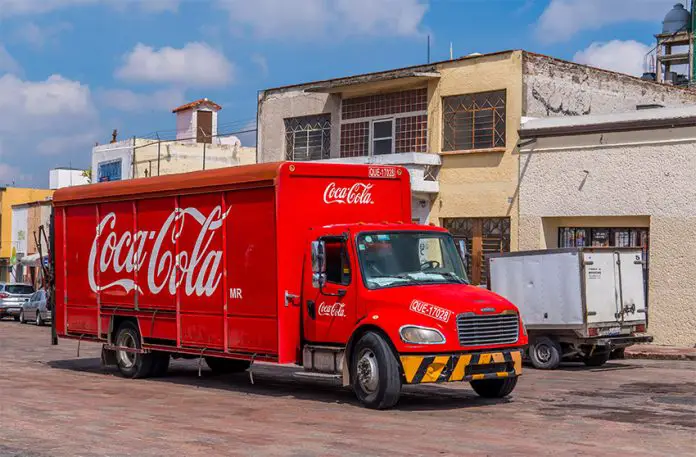Coca-Cola FEMSA has shuttered a distribution center and suspended the delivery of its products in the southern part of the state of Morelos after four workers were kidnapped.
The company announced Wednesday that it had decided to “temporarily suspend” its operations “in the different channels” in the area in and around Puente de Ixtla, a Morelos municipality where the beverage manufacturer has a distribution center.
Coca-Cola FEMSA said it took the decision “to guarantee the safety of our collaborators” and “in response to the situation of insecurity the community of Puente de Ixtla is going through.”
The El Universal newspaper reported that the temporary suspension of the distribution of Coca-Cola products came after four of the company’s workers “were kidnapped and taken to another entity of the republic to steal their goods.”
It appears that Coca-Cola distribution trucks were in fact hijacked by criminals and driven out of Morelos with the rightful drivers still on board. The victims were subsequently released.
Morelos Governor Samuel Sotelo Salgado said that criminal complaints relating to the kidnappings have been filed with the State Attorney General’s Office.
‼️MEXICO Coca Cola suspende distribución de sus productos en Morelos. Decenas de camiones abandonan las instalaciones de Puente de Ixtla, Morelos por la inseguridad y cobro de piso. La planta de Coca Cola fue abandonada ante las amenazas de cobro de piso del crimen organizado.‼️ pic.twitter.com/SgPINSPzxN
— Armando Rojas arias (@AArias52630) September 13, 2024
Coca Cola moved distribution trucks out of the Puente de Ixtla center after it shut down.
“It appears four distributors, or those who drive the trucks, were detained [by criminals]. It seems they were taken to another state,” he said.
Sotelo, who replaced former soccer star Cuauhtémoc Blanco as governor of Morelos this year, suggested that a crime group that operates in Taxco, Guerero — located about 50 kilometers west of Puente de Ixtla — may be responsible for the crime.
“It’s very probable that [these criminals] have moved into the state of Morelos,” he said.
The truck hijacking occurred in the municipality of Amacuzac, which borders Puente de Ixtla to the east and Taxco to the west.
Sotelo stressed that Coca-Cola FEMSA will not permanently cease operations in Morelos.
“We hope that there is no loss of jobs. They’re not leaving the state, they’re only suspending distribution … in this area temporarily,” he said.
Sotelo also said that the state government was assisting Coca-Cola FEMSA with security issues. “We’re looking at the way we can provide security,” he said.
The company said it would resume its activities “once security conditions are guaranteed.”
President Andrés Manuel López Obrador said Friday that Coca-Cola FEMSA hadn’t asked for security assistance from the federal government.
“They never asked us [for help]. … We attend to all calls,” he told reporters at his morning press conference.
López Obrador asserted that the issue has been blown out of proportion.
“Yesterday, there was a scandal on social media about this, [with people saying] that Coca-Cola would no longer be sold in Morelos,” he said.
The Expansión news website reported Thursday that small business association ANPEC had not received any reports of shortages of Coca-Cola products in retail establishments in Morelos.
With reports from El Universal, Animal Político, Expansión, López-Doriga Digital and La Jornada
